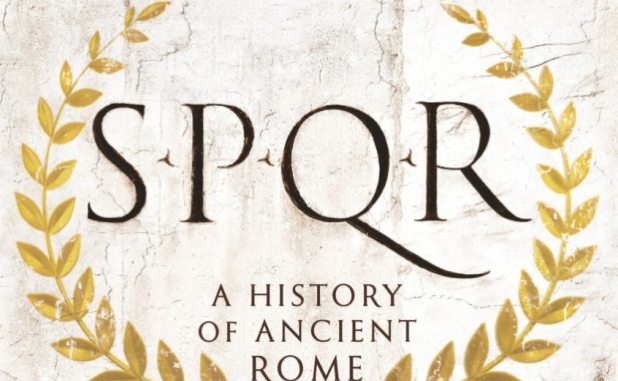
Coming in at 544 pages, Mary Beard’s new release, SPQR: A History of Ancient Rome, seems like quite the challenge. However, in reality it is anything but.
If you find the classical world to be a bit of a bore then SPQR will come as something of a pleasant surprise. It’s a classical history tome which enlivens stories of an ancient civilisation by focusing on the lives of the average person, people whose everyday concerns are actually not so far from ours. If, on the other hand, you are a Classics aficionado then SPQR will live up to all your expectations, being as well-researched and enlightening as you should expect from a Cambridge professor like Beard.

Indeed, this is what has allowed Beard to rack up such an impressive public following while maintaining her prestige— an ability to consistently present material of academic merit in an entertaining and accessible way. SPQR is testament to the fact that, rather than reinforcing the gulf that exists between academia and the average person, Beard seeks to overcome it.
It is this balancing act, between credibility and likability, which Beard has consistently trod and which has earned her an OBE and made her a household name. Beard wishes to open up her academic field to the people for whom Latin was not a compulsory part of the school curriculum and to share her knowledge, rather than shrouding it in layers of impenetrably difficult language.
Beard gives the women of the Roman Empire a similar treatment — she opens up their access to the history books, hundreds of centuries after their deaths. While women are scarcely featured in the official version of the history of Rome, not being in the position to make or break laws or start wars, Beard’s more people-focused take on this history inserts them back into the picture. It is absurd that women should be so absent from the previously published books about Rome — clearly they existed and clearly they had a story to tell.
SPQR was written with a desire to do right by the people of Ancient Rome; to give the good, the bad and the ugly proper representation, even if the final product deviates from what is expected from books of this ilk. Indeed, Beard refuses to simply regurgitate what we know about this historical period, offering her own fresh analysis and opinions at every turn — for example, knocking Pliny the Younger off of his pedestal by describing him as “humourless” and “self-congratulatory”.
This is what makes SPQR so special — not only can it serve as an invaluable introduction to this historical period but it adds something new to everything that has been written about Rome. Beard puts her own stamp on her account of the Roman empire by pursuing her intellectual interests and going about this mammoth task in her own way. Even if you’ve read everything else out there, you’ll be hard-pushed to come about something like SPQR.
by Megan Wallace

Leave a Reply